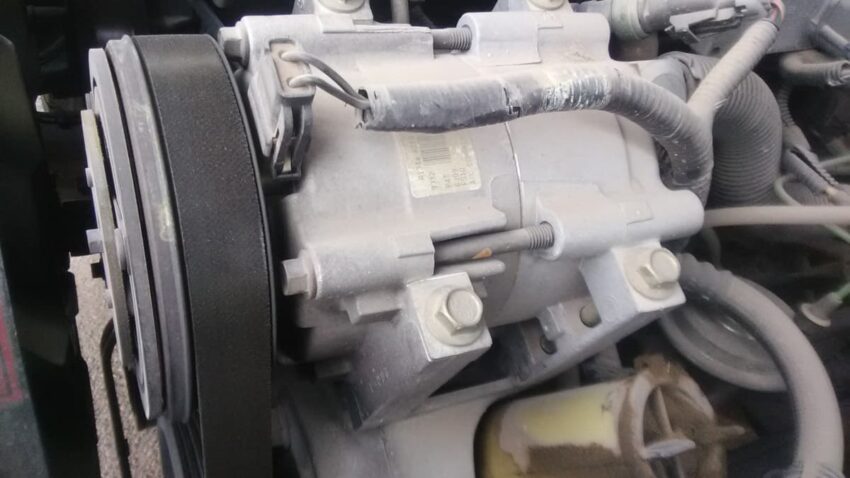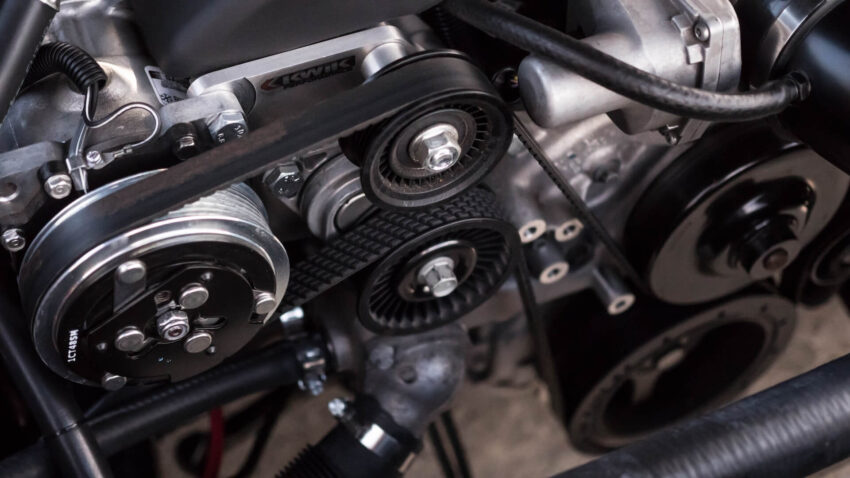Having a noisy car AC compressor can be quite frustrating. Not only does it make driving uncomfortable, but it can also be a sign of underlying issues that need attention. In this comprehensive guide, we will explore how to quiet a noisy car ac compressor. Whether you’re a car enthusiast or a regular driver, these tips will come in handy to restore a peaceful and pleasant driving experience.
Understanding the AC Compressor

Before we delve into the solutions, let’s first understand what an AC compressor does. The AC compressor is crucial to your car’s air conditioning system. It plays a vital role in circulating refrigerant and compressing it to cool the air before it enters the cabin. However, the AC compressor can develop issues that lead to noise and inefficiency over time. One common cause of a noisy car AC compressor is a fan clutch stuck engaged. When the fan clutch stuck engaged, it constantly spins at high speed, even when it’s unnecessary. This can create excess noise and put unnecessary strain on the AC compressor. Let’s explore how to address this issue.
Identifying the Source of Noise
Identifying the noise source before attempting any repairs or adjustments is essential. A noisy car AC compressor can result from various factors, such as loose or worn-out components, inadequate lubrication, or electrical problems. By identifying the source, you can take the appropriate steps to resolve the issue and restore the quiet operation of your AC compressor. Here are some possible causes and their solutions:
1. Loose Belts
One common cause of a noisy car AC compressor is loose belts. Over time, the belts that connect the AC compressor to the engine can become worn out or stretched, causing them to slip and create a squealing or screeching noise. To address this issue, you can tighten the belts or replace them if they are excessively worn. It’s advisable to consult your car’s manual or seek professional help for proper belt tensioning.
2. Insufficient Lubrication
Proper lubrication is essential for the smooth operation of the AC compressor. When the compressor lacks sufficient lubrication, it increases friction and noise. If necessary, checking the compressor’s oil levels and adding lubricant can help reduce the noise. However, it’s crucial to use the recommended lubricant specified by the manufacturer to avoid any potential damage.
3. Faulty Compressor Clutch
The compressor clutch engages and disengages the compressor from the engine. The clutch can produce a rattling or grinding noise if worn out or damaged. In such cases, replacing the faulty clutch can eliminate the noise and restore proper functioning. It’s advisable to consult a professional mechanic to diagnose and replace the compressor clutch if needed.
4. Electrical Issues
Electrical problems can also contribute to a noisy car AC compressor. Loose connections, faulty relays, or damaged wiring can cause the compressor to make unusual sounds. Inspecting the electrical components and ensuring they are properly connected and in good condition can help resolve the issue. If you’re unfamiliar with electrical systems, seeking professional assistance is recommended.
Additional Tips for a Quiet AC Compressor
Aside from addressing specific issues, there are a few additional tips that can help maintain a quiet AC compressor:
- Regular Maintenance: Schedule regular maintenance for your car’s AC system to ensure optimal performance and detect potential issues early on.
- Cleanliness: Clean the AC compressor and surrounding areas from dirt, debris, and dust accumulation. This can prevent unwanted noise and prolong the life of the compressor.
- Proper Usage: Avoid using the AC system at its highest settings for an extended period. Excessive strain can lead to increased noise and potential damage to the compressor.
- Quality Parts: When replacing any components of your AC system, ensure you use high-quality parts that meet the manufacturer’s specifications. This can contribute to smoother operation and reduced noise levels.
Conclusion
Having a noisy car AC compressor can be bothersome, but with the right techniques and maintenance, you can restore peace to your driving experience. By understanding the common causes of a noisy AC compressor and following the recommended solutions, you can reduce the noise and maintain the efficiency of your car’s air conditioning system. Consider your car’s manual or seek professional help if you’re unsure about any repairs or adjustments. Take care of your car’s AC compressor, and enjoy a comfortable and serene ride!
You may like to read How to Drain a Water Heater

